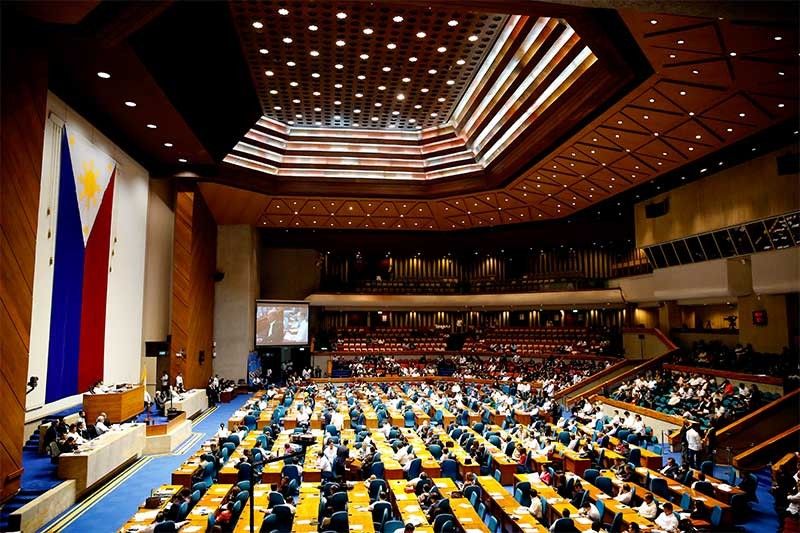By Charmaine A. Tadalan, June 10 2019; Business World
https://www.bworldonline.com/more-economic-measures-pushed/
Image Credit to Philippine Star
THE 17TH CONGRESS, which closed its third and last regular session on Tuesday, passed an “acceptable” number of laws, key officials of business chambers said, but noted the lack of measures on economic liberalization.
Business leaders, in separate interviews, commended the 17th Congress for passing “landmark legislation,” but pushed for other measures to increase investments and boost the economy.
“Overall, I think the number of laws that have been passed is acceptable. The laws passed are slightly higher than the 16th Congress, but much lower than the 15th,” Philippine Chamber of Commerce and Industry (PCCI) President George T. Barcelon said in a phone interview on Thursday.
Tuesday marked the last session day of the 17th Congress. Bills that failed to secure both chambers’ final approval will have to be filed and go through public hearings and plenary debates anew in the 18th Congress which opens on July 22.
The PCCI chief noted in particular Republic Act (RA) 11223 or the Universal Health Care Act, which will provide health care to all Filipinos; RA 10963 or the Tax Reform for Acceleration and Inclusion (TRAIN) Law, which reduced personal income tax while tweaking levies on selected goods; and the measure further increasing excise tax rates for tobacco products, which was passed last week and is awaiting President Rodrigo R. Duterte’s signature.
British Chamber of Commerce of the Philippines (BCCP) Chairperson Chris Nelson, in a phone interview on Thursday, also noted RA 11032 or the Ease of Doing Business and Efficient Government Service Delivery Act.
“The 17th Congress passed landmark legislation like the Ease of Doing Business, Balik Scientist, TRAIN, Extending Drivers License and Passport Validity, Agricultural Free Patented Reform, Central Bank Reform, National ID, Department of Housing, among others that will help make the country more competitive,” Federation of Filipino Chinese Chambers of Commerce & Industry, Inc. (FFCCCII) Trade and Industry Committee Chairman George Siy said in a text message on Friday.
ECONOMIC LIBERALIZATION
Meanwhile, the business groups said the sector was left wanting more economic measures, specifically those opening the country to more foreign investments, which they hope incoming legislators can act on once they start their terms.
“I was looking for the passage of the Retail Trade Liberalization Act. I was also looking at the Foreign Investments Act, both of which are to drive more foreign direct investments,” BCCP’s Mr. Nelson said.
He also pointed out the delay in the issuance of the implementing rules and regulations of RA 11032. “I think the Ease of Doing Business Law will, once it’s fully implemented, have a great benefit on the country. But it’s not yet fully implemented,” Mr. Nelson said.
PCCI’s Mr. Barcelon added that the sector is still awaiting the passage of the measure proposing to reduce the corporate income tax in the Philippines — currently the highest among Association of Southeast Asian Nations members.
“I think the one that we’re still waiting for is the reduction on the CIT, corporate income tax. Other than that, we haven’t seen any laws that really will help boost the economy,” he said.
He said he hopes the 18th Congress will also pass proposed amendments to the 82-year-old Public Service Act, which will lift foreign ownership limits in certain sectors, as well as other measures that will reduce prices of basic goods and improve human resources.
“The Public Service Act, it would be good, or even logistics. There should be more competition that opens up for investors to come in so that the cost can be lowered,” he said.
“What we look forward to is for the government to pass laws that would help reduce the cost of living. I hope the 18th Congress would be able to act on some of this. The priority bills of the President, I think only less than half were passed during the 17th Congress,” Mr. Barcelon said.
“Our leaders showed amidst differences, we must work for the country. Given the regional competition happening, now more than ever, we have to row forward together to overcome and ride the upcoming tides,” FFCCCII’s Mr. Siy said.
Out of 28 measures in the Common Legislative Agenda for the 17th Congress approved by the Legislative-Executive Development Advisory Council, lawmakers were able to pass 14, including three bills that form part of the government’s Comprehensive Tax Reform Program.
Two are still awaiting Mr. Duterte’s signature (the security of tenure bill and the bill increasing taxes on tobacco products), while one priority measure that hurdled Congress was vetoed (coconut levy fund bill). — Charmaine A. Tadalan

